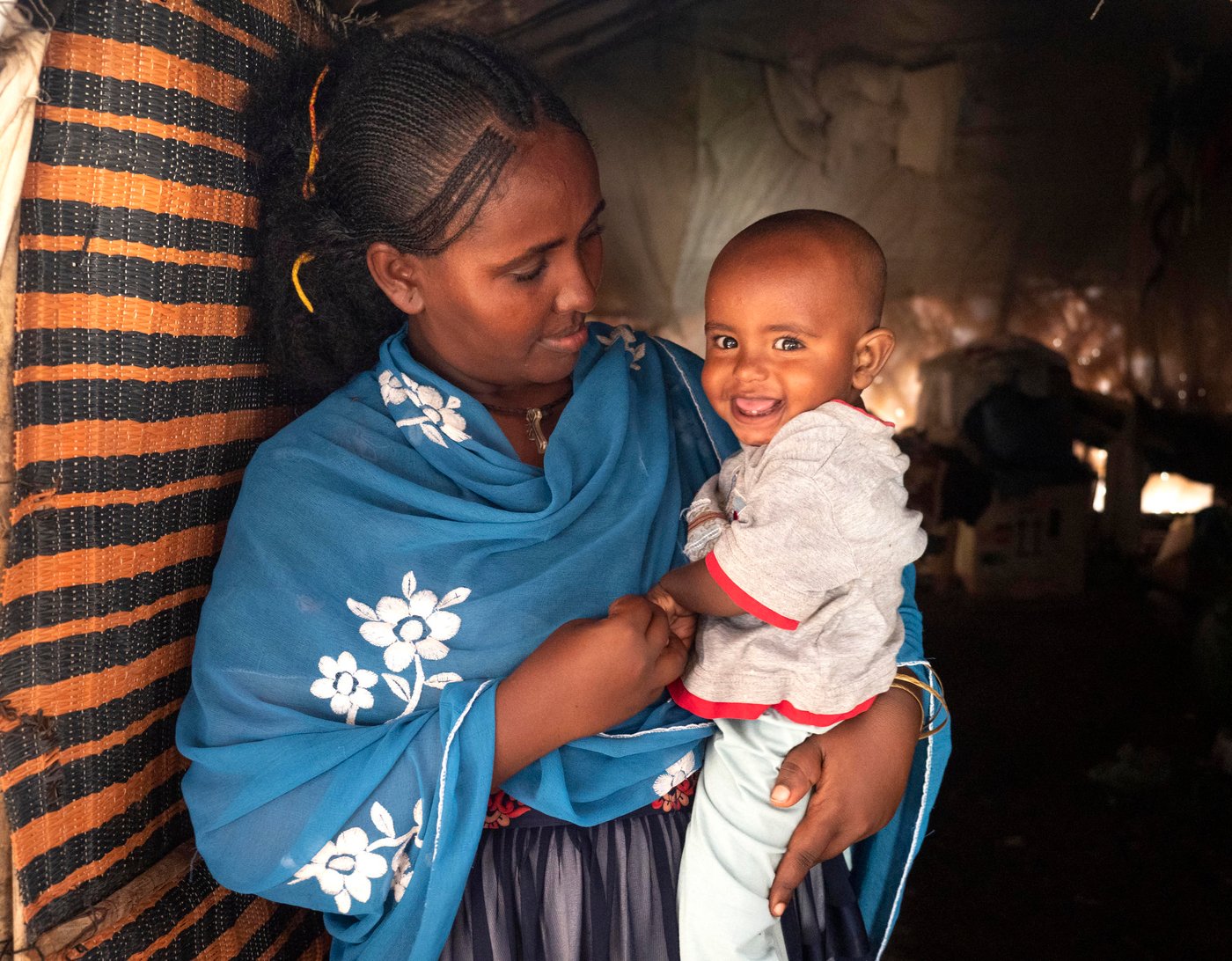When Rahwa and her husband found out she was pregnant, they were overjoyed. “We thanked God. We were so excited,” Rahwa remembers. “I kept dreaming of what my child would grow up to be. I imagined him growing up to be a doctor. I never thought I would give birth to him in this situation.”
Rahwa was preparing to welcome her new child when war erupted in Ethiopia. Before long, she was fleeing through the forests, nine months pregnant, holding her nine-year-old son tightly by the hand. Her husband decided to stay behind.
“It was a difficult journey,” she says. “There was no water or food. I knew I was giving birth anytime soon. I was tired. Everything was very hard.”
She and her son walked for days and crossed a river until she finally arrived in Um Rakuba, a refugee camp in Sudan.
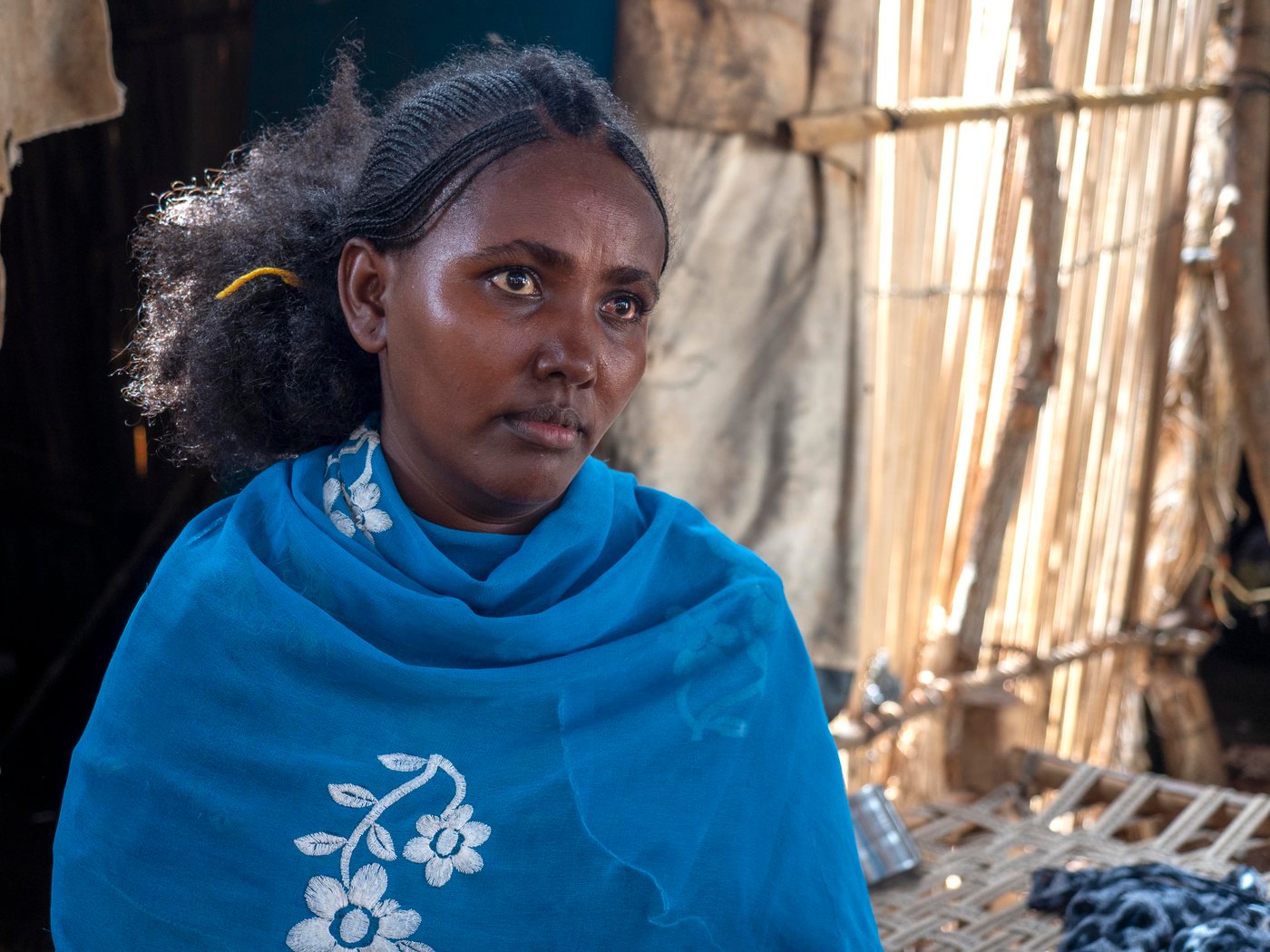
Sudden conflict
In November 2020, a blazing war in the Tigray region of Ethiopia pushed tens of thousands to suddenly flee across the border to Sudan. Today, there are around 55,000 Tigrayan refugees in Sudan. Over 18,000, like Rahwa, now reside in Um Rakuba refugee camp, in Gadarif.
Rahwa wondered every day what had come of her husband and the rest of her family. A few days after her arrival, another refugee told Rahwa that her mother and brother were in the camp. Rahwa hoped so much that what she heard was true.
Rahwa was reunited with her mother and brother. She and her mother now live together, while her brother lives with his wife and children in a nearby shelter.
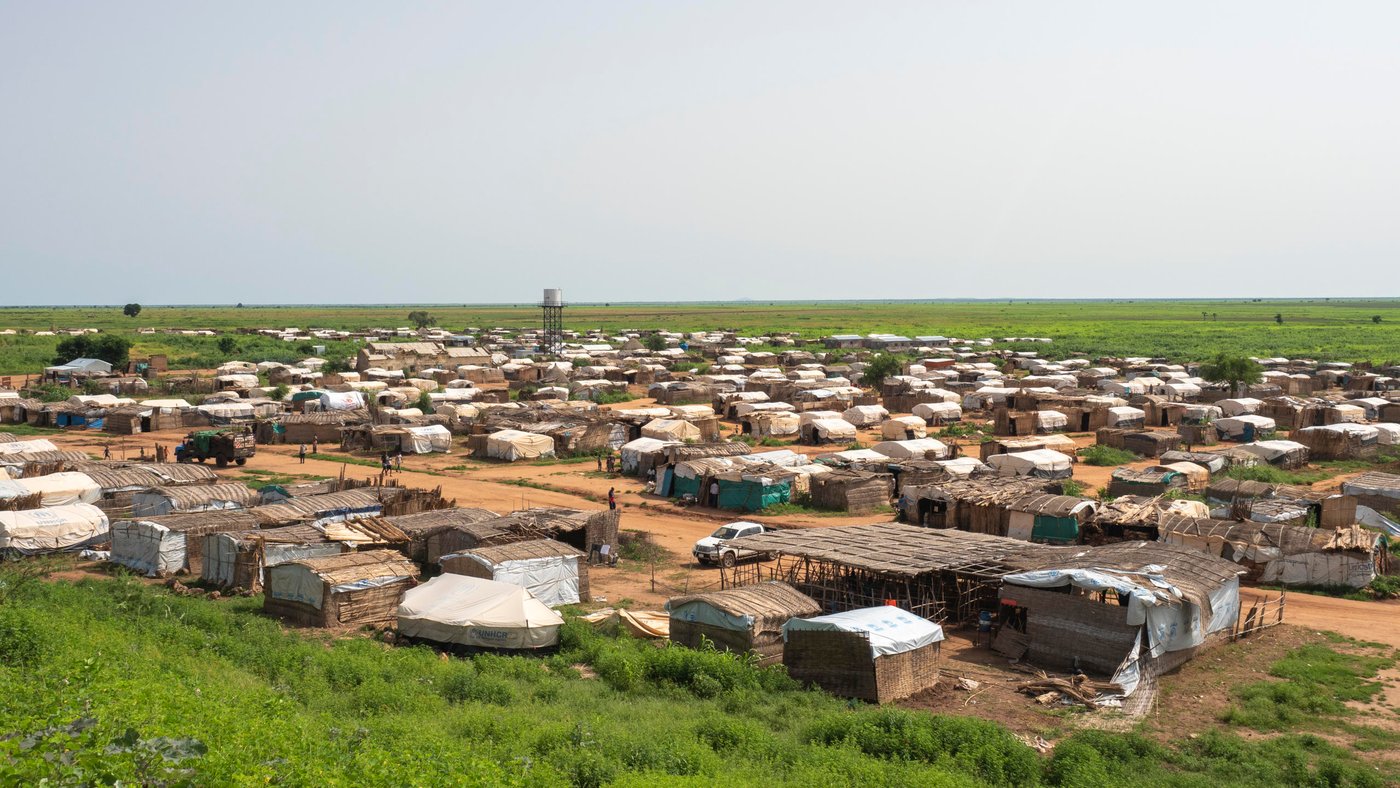
Birth
One week after her arrival at the camp, before she could take a breath of relief, Rahwa went into labour. She gave birth in the nearest village to a healthy baby boy. She still remembers the fear and the many questions that rushed through her head. She wondered what would await her in this new life, and how long it would be before she could go back home. She also wondered about the life she’ll be able to give her son, and whether she’ll be able to raise him in a refugee camp, without his father.
It's now been more than a year since Rahwa fled her home. With only her elderly mother by her side, Rahwa wakes up every day and finds the strength to take care of her children in the camp. She cannot leave her baby alone to find a job and support her family, so she relies on what little aid she gets from humanitarian organisations.
There are little to no jobs inside the camp, especially for mothers like Rahwa. Women in the camp mostly sell food, tea, coffee, soft drinks, and vegetables. Such jobs come with risks for women. An NRC assessment found that women in Um Rakuba find it harder to shop in the nearest marketplace due to higher risk of sexual assault. And in a place where one needs to stand in a queue for water and walk a long way for the nearest market, the choices can be limited for women like Rahwa.
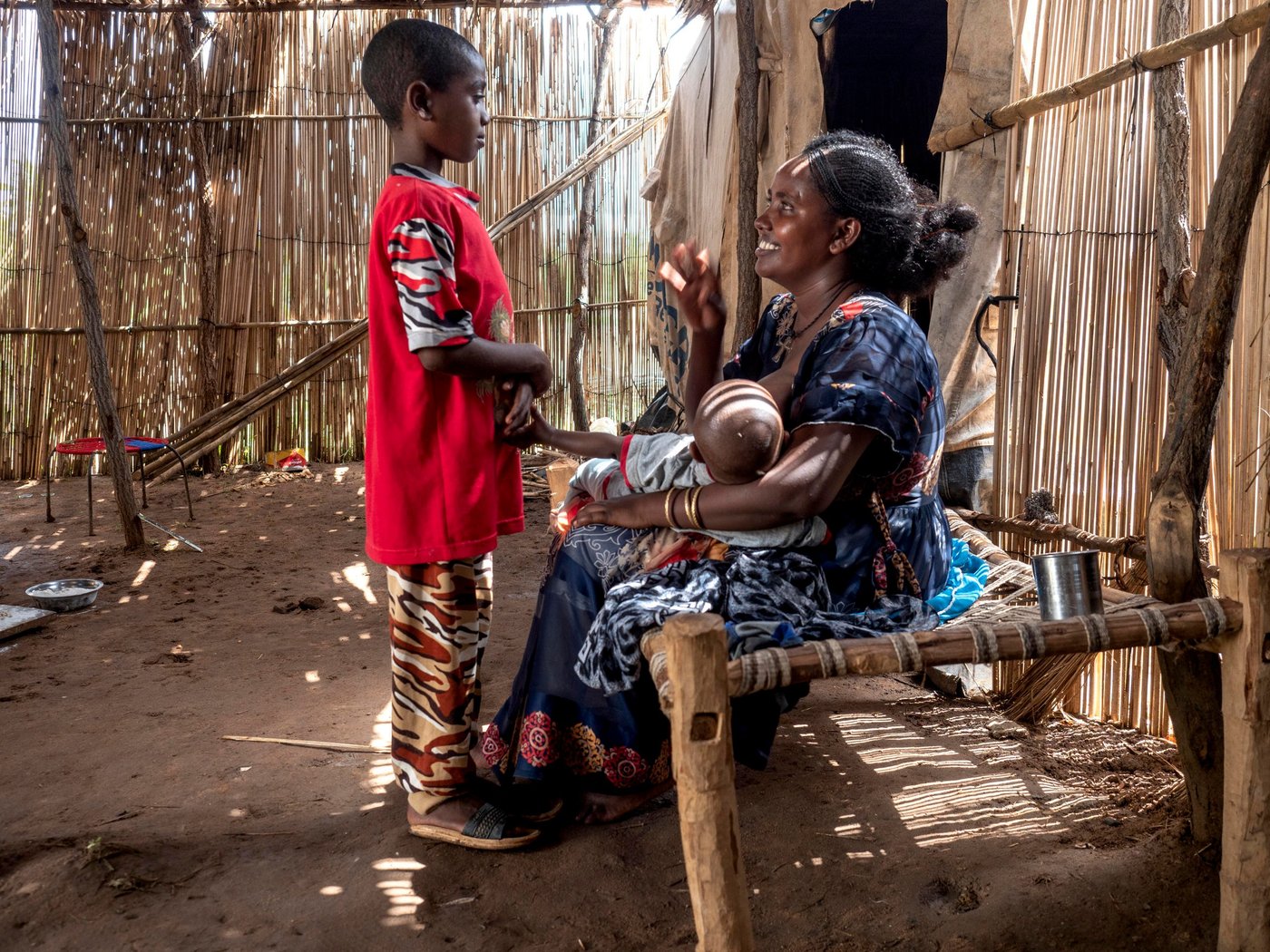
“I cannot sleep at night,” she admits. “I am alone here, and I need someone to support me. If my husband were here, life would not be this difficult. I need him here, and it makes me sad.”
Through all the difficulties, Rahwa still has hope for a bright future.
“I hope peace will come to our country, and we can return. I hope my children are able to live safely and grow up to find jobs and make families.”
A lack of food
Within walking distance from Rahwa's shelter, lives another mother. Abadit, 26, came to the camp with her husband, daughter, and young brother. Her husband and brother later decided to return to Ethiopia. Eight months pregnant, she takes care of her five-year-old daughter, Nohel, alone.
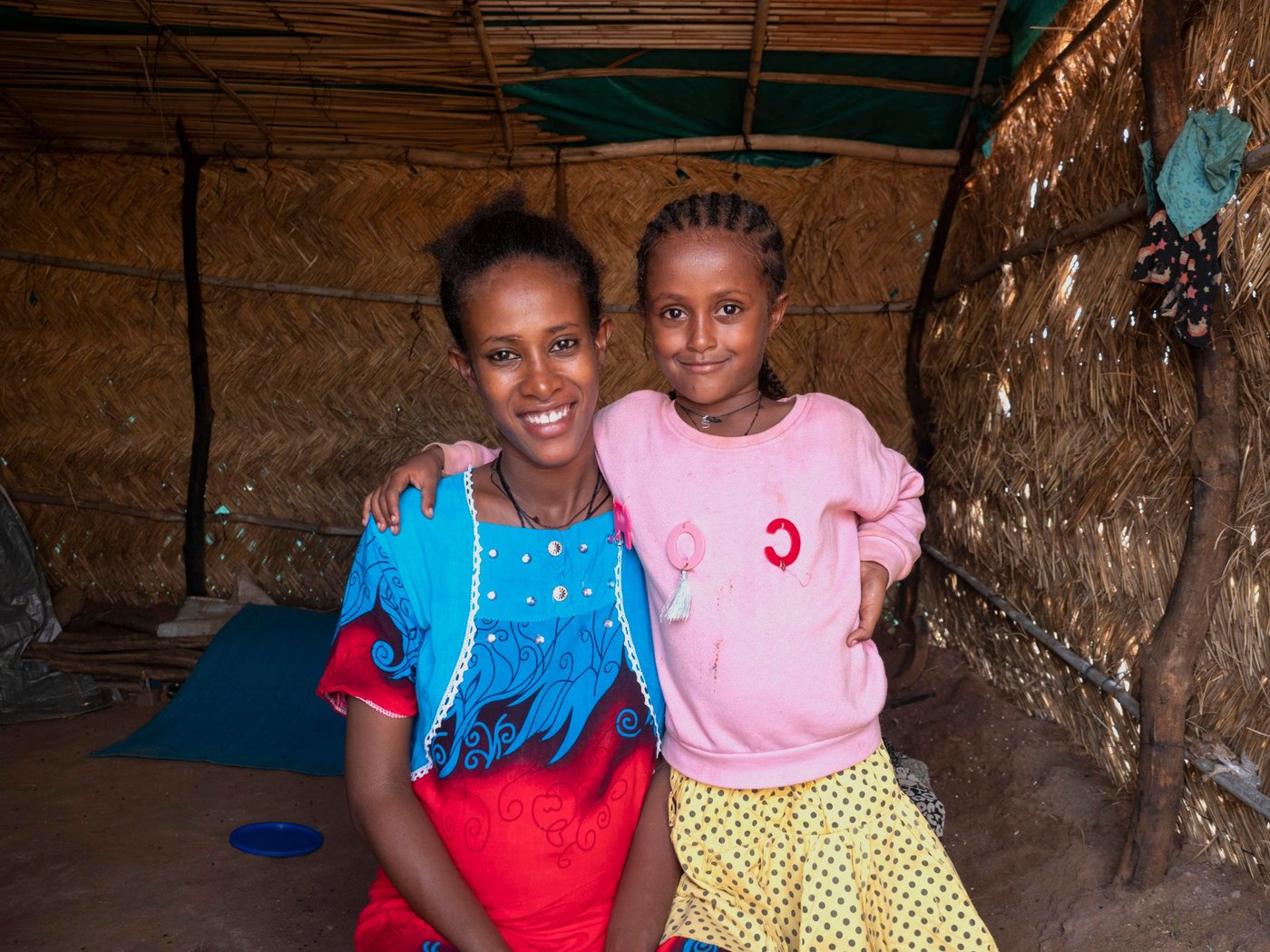
“We were four. Then my husband left,” says Abadit. “He was the one who worked a bit and brought us money. Now, there is nothing. Me, I can’t work. We don’t have anyone who works and brings money.”
Like many families in the camp, Abadit’s family received blankets and other items to help improve their living conditions. But she had no choice but to sell those items for food.
“It’s very difficult,” she says. “There’s no food to eat. They gave us groceries and blankets and we sold that to get food. We sold that to live, so we have nothing.”
According to an NRC vulnerability analysis from September 2021, 95 per cent of 453 surveyed refugee households in Um Rakuba had to sell household assets or other items to buy food. The report results also showed that food security was the clear primary concern for the vast majority of the population.
“When I went to the hospital to check on the baby, they told me many things, like to drink a lot of liquid and eat something to fill my blood,” says Abadit. “But where do you get the money to do that? You need money to buy those things. So, you say okay and go home.”
The lack of food is not the only thing to keep Abadit up at night. Abadit suffers from pregnancy health complications and pains. There are free health services through the Ministry of Health, the U.N. and other organisations. But due to the location of the camp and fuel shortages in Sudan, a shortage of supplies remains an issue. Abadit stays up all night from the pain and worries if something is going to happen to her baby.
“It’s difficult in the camp,” she says. “Being pregnant is difficult. I speak for myself. It’s very painful, I have severe pain. My hands and face are swollen and I have low blood pressure.”
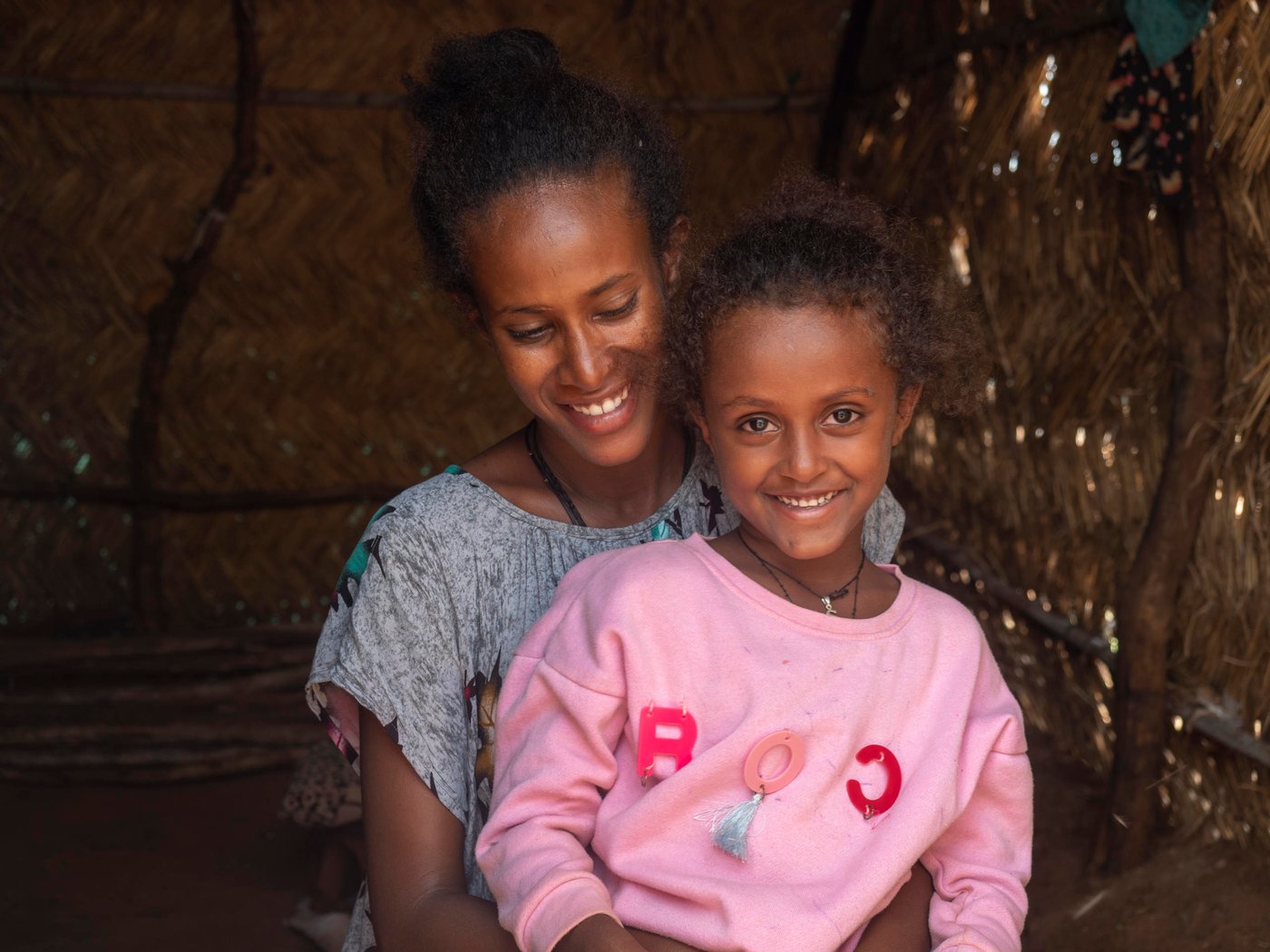
Hoping for a peaceful future
When she watches her daughter, Nohel, playing in the dirt, all the worry fades into a smile on Abadit’s face. The sight of her daughter brings her hope. She remembers what she fights for every day for, a peaceful future with her children.
“In the future, we hope for good things: to meet with our family, the way it was before, love, and harmony. To live with love and health, that is my wish,” says Abadit.
Thanks to the generous support of UNHCR, we are able to provide shelter, non-food items assistance and education to refugees, as well as carry on camps preparation and maintenance activities in Um Rakuba, Tunaydbah, and Babikri camps. More information on UNHCR on their website


